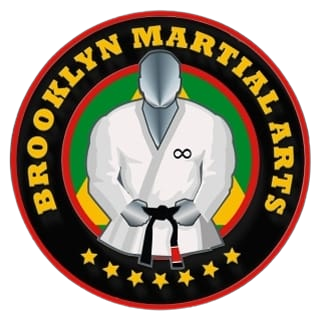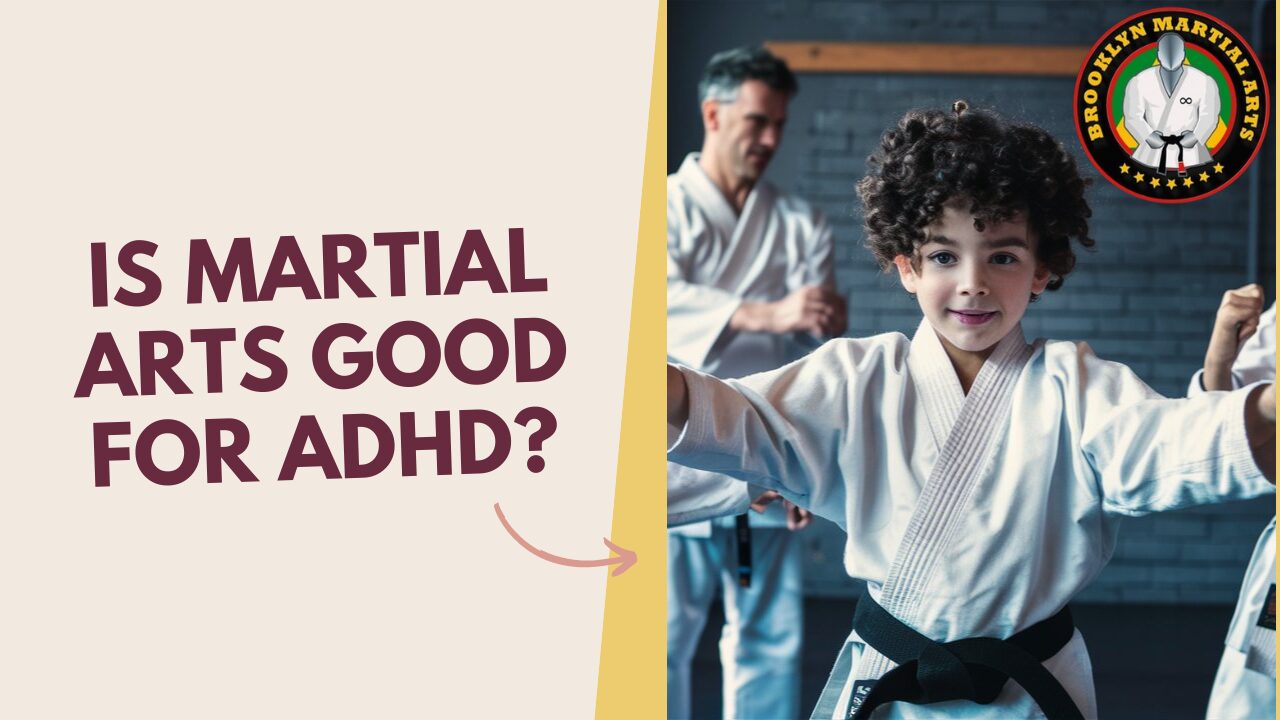Martial arts training provides cognitive and behavioral benefits for individuals with ADHD. It enhances attention skills, focus, and concentration while helping to filter out distractions. The mind-body connection in martial arts synchronizes physical movements with mental focus, promoting coordination, balance, and stress relief. Structured nature of training fosters discipline, self-control, and improved concentration levels. Physical activity in martial arts manages ADHD symptoms by regulating neurotransmitters, improving memory, and reducing impulsivity. It offers a holistic approach through integrated mindfulness techniques and a structured environment. Martial arts can significantly contribute to ADHD management and well-being.
Key Takeaways
- Martial arts training enhances attention skills and focus for individuals with ADHD.
- It improves concentration, filters out distractions, and aids in staying on task.
- The mind-body connection in martial arts promotes coordination, balance, and overall wellness.
- Martial arts cultivates discipline, self-control, and regulation of impulses and emotions.
- Physical activity in martial arts helps manage ADHD symptoms by enhancing focus, memory, and brain health.
The Link Between ADHD and Martial Arts
In exploring the relationship between Attention Deficit Hyperactivity Disorder (ADHD) and the practice of martial arts, a growing body of research suggests potential benefits for individuals with ADHD. Martial arts training has been associated with various cognitive benefits that may be particularly advantageous for individuals with ADHD. One key area of focus is the enhancement of attention skills through the practice of martial arts.
Individuals with ADHD often struggle with maintaining focus and sustaining attention, which can impact their daily functioning. Martial arts training requires practitioners to concentrate on specific movements, techniques, and strategies, promoting increased focus and attention control. Through regular practice, individuals with ADHD may improve their ability to concentrate, stay on task, and filter out distractions.
Moreover, martial arts emphasize discipline, self-regulation, and perseverance, which are essential skills for individuals with ADHD to manage their symptoms effectively. By cultivating attention skills through martial arts practice, individuals with ADHD may experience improvements in their overall cognitive functioning and daily life activities.
Benefits of Martial Arts Training
Martial arts training offers a myriad of physical and mental benefits that can positively impact individuals of all ages and abilities. One of the key benefits is the enhancement of the mind-body connection. Through practicing martial arts, individuals learn to synchronize their physical movements with mental focus and intention, promoting a deeper connection between the body and mind. This increased awareness can lead to improved coordination, balance, and overall physical wellness.
Furthermore, martial arts training is known for its stress-relieving properties. Engaging in structured training sessions allows individuals to release built-up tension and stress in a controlled and disciplined environment. The physical exertion involved in martial arts practice also triggers the release of endorphins, which are natural mood enhancers that can help alleviate symptoms of stress and anxiety.
Improved Focus and Discipline
The structured nature of martial arts training fosters not only physical benefits but also cultivates improved focus and discipline in practitioners. Through consistent practice, individuals with ADHD can experience enhanced concentration levels as they learn to center their attention on specific movements, techniques, and forms. Martial arts require a high level of mental engagement, which can help individuals with ADHD develop better focus and attention skills over time.
Moreover, martial arts teach self-control techniques that can be particularly beneficial for individuals with ADHD. Techniques such as deep breathing, mindfulness, and meditation are often incorporated into martial arts training, helping practitioners regulate their impulses and emotions. By learning how to control their movements and reactions during training, individuals with ADHD can apply these self-control skills to other aspects of their lives, leading to improved discipline and behavior management.
Physical Activity and ADHD Management
Engaging in regular physical activity has been shown to play a significant role in the management of ADHD symptoms. Exercise benefits individuals with ADHD by helping regulate their levels of dopamine, norepinephrine, and serotonin, which are neurotransmitters involved in focus and attention. Physical activity also has cognitive benefits, such as improving memory, executive functioning, and overall brain health. Studies have demonstrated that engaging in activities like martial arts, sports, or even regular exercise routines can lead to a reduction in ADHD symptoms like impulsivity and hyperactivity.
Regular physical activity helps individuals with ADHD expend excess energy, leading to improved concentration and reduced restlessness. Additionally, exercise can act as a natural mood enhancer, decreasing feelings of anxiety and depression often associated with ADHD. The cognitive benefits of physical activity extend beyond symptom management, potentially enhancing academic performance and social interactions for individuals with ADHD. Incorporating structured physical activity into daily routines can complement existing ADHD treatments, offering a holistic approach to symptom management.
Martial Arts as a Holistic Approach
Utilizing martial arts as a holistic approach to managing ADHD involves integrating physical activity with mindfulness techniques to enhance focus and self-regulation. The mind-body connection is central to this approach, as martial arts require individuals to be fully present in the moment, focusing on their movements and breathing. This heightened awareness can help individuals with ADHD improve their attention span and impulse control.
Moreover, martial arts provide a structured environment that promotes discipline and routine, which can be beneficial for individuals with ADHD who often struggle with organization and time management. The practice of martial arts also offers stress relief, allowing individuals to channel their energy in a productive and controlled manner. The physical activity involved in martial arts helps release endorphins, which are natural stress relievers, promoting a sense of well-being and calmness.
Frequently Asked Questions
How Can Parents Find a Martial Arts Program Specifically Tailored for Children With Adhd?
Finding a martial arts program tailored for children with ADHD requires parental involvement. Seek schools offering individualized instruction, focusing on progress tracking. Clear communication with instructors about the child’s needs is crucial for a positive and effective experience.
Are There Any Specific Martial Arts Techniques or Styles That Are More Beneficial for Individuals With Adhd?
When considering specific martial arts techniques or styles for individuals with ADHD, focus on disciplines that emphasize the mind-body connection, promoting concentration and self-discipline. Practices that enhance physical coordination and self-confidence can be particularly beneficial.
Can Martial Arts Training Be Used as a Form of Therapy for Individuals With Adhd?
Martial arts training can serve as a valuable form of therapy for individuals with ADHD. Through physical activity, cognitive benefits, emotional regulation, and improved focus and attention can be achieved, potentially enhancing overall well-being and quality of life.
How Can Martial Arts Instructors Modify Their Teaching Methods to Accommodate Students With Adhd?
In adapting teaching strategies for students with ADHD, martial arts instructors can enhance attention span by breaking down techniques into smaller steps. Creating a structured classroom environment, incorporating physical activity, and providing positive reinforcement can optimize learning outcomes.
Are There Any Potential Risks or Drawbacks to Consider When Enrolling a Child With ADHD in Martial Arts Classes?
When enrolling a child with ADHD in martial arts, potential risks and drawbacks to consider may include the physical nature of the sport, potential for injury, and challenges with focus and impulsivity. Individualized support and monitoring are crucial.
Conclusion
In conclusion, the practice of martial arts shows promise in helping individuals with ADHD improve focus, discipline, and physical activity levels.
The structured nature of martial arts training can provide a holistic approach to managing symptoms of ADHD.
Further research is needed to fully understand the potential benefits of martial arts for individuals with ADHD, but current evidence suggests that it can be a valuable tool in their overall treatment plan.

